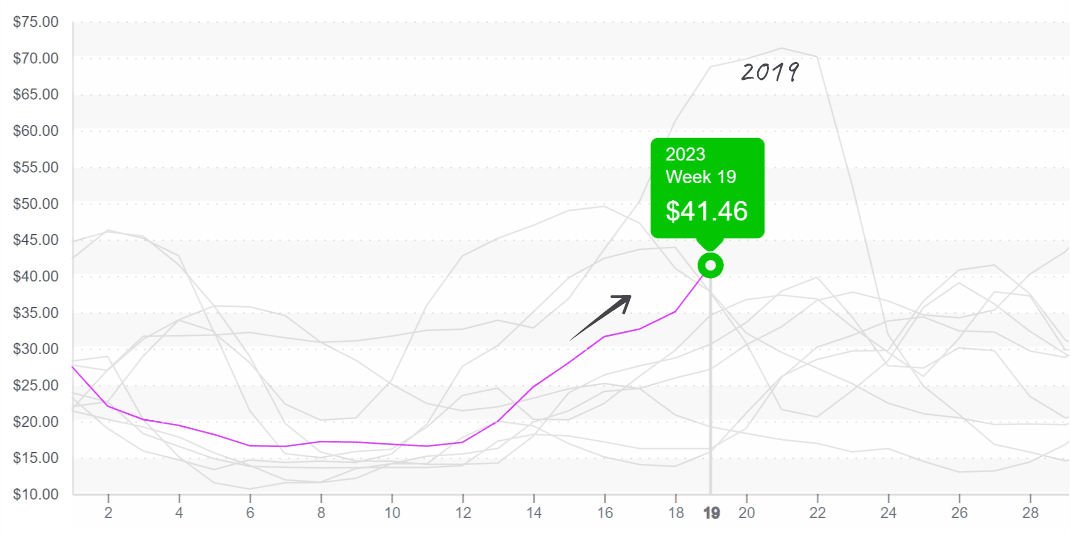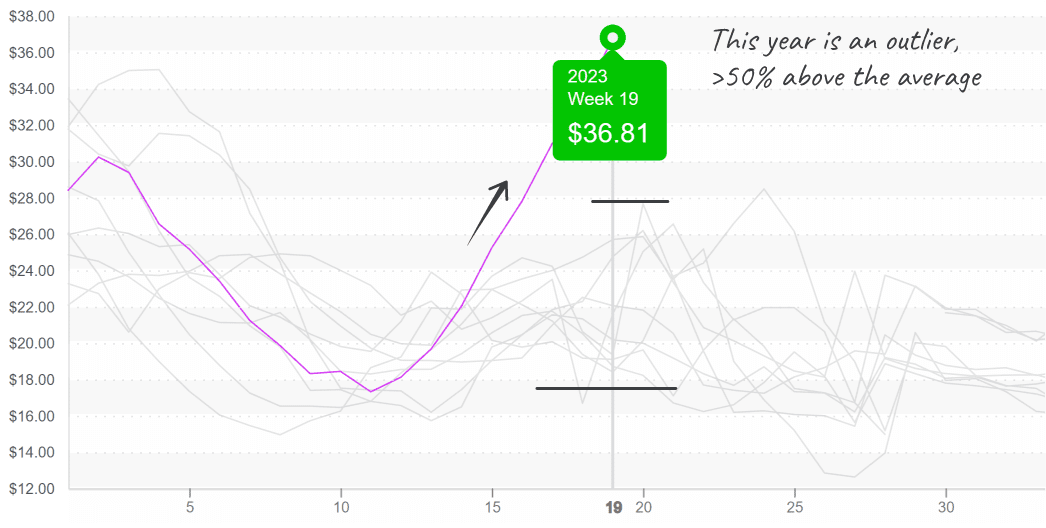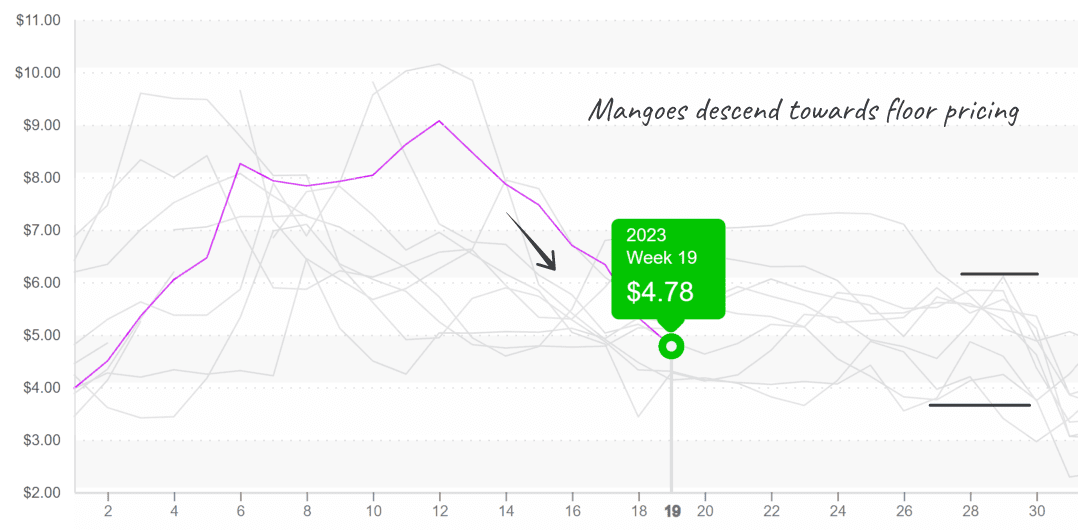An unusually early-season heat wave in the Pacific Northwest is shattering records. The weather throughout the region is forecasted to run in the 90s, 20 degrees above average for this time of year.
To put the rarity of this weather event in perspective, in 70 years, temperatures have only reached these heights a handful of times and never this early in May.
On the opposite corner of the country, Florida Governor Ron DeSantis signed into law this past week a bill that requires private employers to use the federal E-Verify system to confirm workers’ immigration status. This is alarming news for fresh produce growers and shippers in an exceedingly tight labor market.
The unspoken reality is that under-documented workers are the backbone of much of Florida’s agriculture supply chain (along with other labor-intensive industries: landscaping, construction, and hospitality). Florida has an estimated 455,000 employees not authorized to work in this country. With an unemployment rate of only 2.6 percent, tightening the labor supply will cause wage inflation.
This change in Florida policy will undoubtedly negatively affect prices for already struggling consumers and thrust unauthorized workers further into the dark economy. As a result, many are planning moves to states that haven’t adopted a show-me-your-papers strategy.
ProduceIQ Index: $1.02/pound, up -4.7 percent over prior week
Week #19, ending May 12th
Blue Book has teamed with ProduceIQ BB #:368175 to bring the ProduceIQ Index to its readers. The index provides a produce industry price benchmark using 40 top commodities to provide data for decision making.
Overall produce prices are running below average. Down another -5 percent, prices are contradicting historical norms for week #19
Green beans find their ceiling. Even on low supply, prices are down -4 percent over the previous week. Florida is nearly finished, and Mexican supply is following a similar trajectory.
Georgia growers are still a week out but should provide some relief to Eastern markets within the next 7-10 days.
A delayed start to California’s Spring brussels season is pushing prices to a shocking $41. These are the second-highest prices seen in the last ten years. Oxnard, Santa-Maria, and Salinas-Watsonville growers are an estimated three weeks behind schedule.
As a result, buyers are looking to weather-weary Mexican growers to cover the gaps. Due to inclement weather, week #19 brussel volume from Mexico is on the lower end of the historical spectrum. Some quality issues, such as seeders, have been reported, leading to reduced yields and smaller sizing.
Brussels sprouts prices continue their ascent and have a significant upside to reach 2019 levels.

As grape import supply grinds to a halt, average prices catapult another +15 percent over the previous week to a mind-numbing $37. The transition to Mexico is an estimated ten days behind schedule, and the transition to California could be up to three weeks behind the usual start date.
With that in mind, markets are in uncharted territory, with the worst supply woes still yet to be endured. Prices will eventually find their cap; however, extreme volatility should be expected through mid-June.
Grape (blended) prices have a dramatic spike to record highs.


Some sappy news, week #19 mango prices are among the lowest in a decade. Mexican production volumes are outpacing the last few years by a significant margin.
Favorable growing conditions are forecasted to persist, bringing more impressive volume and high-quality fruit. This is a sweet opportunity to promote the favorite fleshy drupe.
Mango prices fall quickly, creating a promotable opportunity.


Please visit Stores to learn more about our qualified group of suppliers, and our online marketplace, here.
ProduceIQ Index
The ProduceIQ Index is the fresh produce industry’s only shipping point price index. It represents the industry-wide price per pound at the location of packing for domestic produce, and at the port of U.S. entry for imported produce.
ProduceIQ uses 40 top commodities to represent the industry. The Index weights each commodity dynamically, by season, as a function of the weekly 5-year rolling average Sales. Sales are calculated using the USDA’s Agricultural Marketing Service for movement and price data. The Index serves as a fair benchmark for industry price performance.



